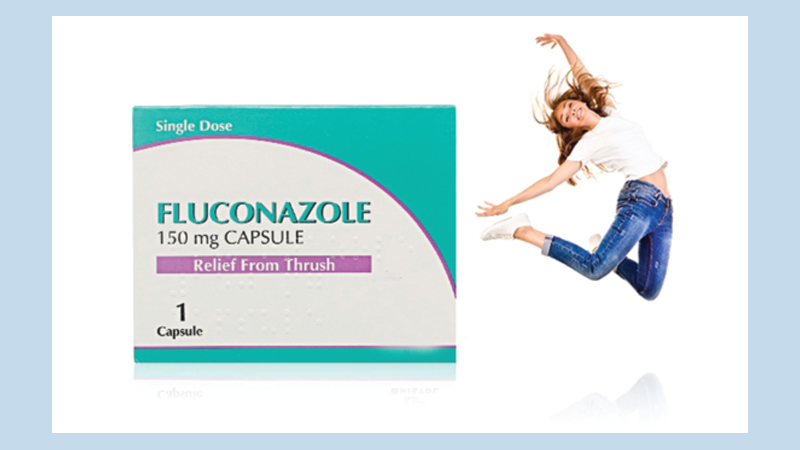how often can you take fluconazole for yeast infection Fluconazole isn’t the answer
Fluconazole Yeast Infection: Uses, Dosages, Side Effects, and More (2022)
Understanding Yeast Infections
 Yeast infections are a common ailment that affects many individuals, specifically women. These infections occur when there is an overgrowth of yeast in the body, particularly Candida. While yeast is naturally present in our bodies, certain factors such as a weakened immune system, antibiotic use, hormonal changes, and high sugar diets can lead to an imbalance and the development of a yeast infection.
Yeast infections are a common ailment that affects many individuals, specifically women. These infections occur when there is an overgrowth of yeast in the body, particularly Candida. While yeast is naturally present in our bodies, certain factors such as a weakened immune system, antibiotic use, hormonal changes, and high sugar diets can lead to an imbalance and the development of a yeast infection.
Treating Yeast Infections with Fluconazole
 Fluconazole is a widely used antifungal medication that is commonly prescribed to treat yeast infections. It works by inhibiting the growth and replication of the Candida yeast. Fluconazole is available in various forms, including oral tablets, oral suspension, and intravenous injection.
Fluconazole is a widely used antifungal medication that is commonly prescribed to treat yeast infections. It works by inhibiting the growth and replication of the Candida yeast. Fluconazole is available in various forms, including oral tablets, oral suspension, and intravenous injection.
Recommended Dosages
 The dosage of fluconazole for yeast infections may vary depending on the severity of the infection, the affected body part, and individual factors. However, the standard recommended dosage for most cases is a single 150 mg oral tablet. In some instances, a higher dosage or multiple doses may be prescribed by a healthcare professional.
The dosage of fluconazole for yeast infections may vary depending on the severity of the infection, the affected body part, and individual factors. However, the standard recommended dosage for most cases is a single 150 mg oral tablet. In some instances, a higher dosage or multiple doses may be prescribed by a healthcare professional.
Possible Side Effects
 While fluconazole is generally well-tolerated, it may cause certain side effects in some individuals. Common side effects include nausea, headache, abdominal pain, and skin rashes. It is important to consult with your healthcare provider if you experience any severe or persistent side effects.
While fluconazole is generally well-tolerated, it may cause certain side effects in some individuals. Common side effects include nausea, headache, abdominal pain, and skin rashes. It is important to consult with your healthcare provider if you experience any severe or persistent side effects.
How Often Can You Take Diflucan?
 Diflucan, also known as fluconazole, is a medication commonly prescribed for the treatment of yeast infections. The frequency of dose administration depends on various factors such as the type and severity of the infection, individual response to the medication, and the healthcare provider’s recommendation. It is important to follow the prescribed dosage and duration of treatment as advised by your doctor.
Diflucan, also known as fluconazole, is a medication commonly prescribed for the treatment of yeast infections. The frequency of dose administration depends on various factors such as the type and severity of the infection, individual response to the medication, and the healthcare provider’s recommendation. It is important to follow the prescribed dosage and duration of treatment as advised by your doctor.
Consultation with a Healthcare Provider
 If you suspect that you have a yeast infection or have any concerns regarding its treatment, it is recommended to consult with a healthcare provider. They will be able to diagnose the infection accurately and provide appropriate guidance on the use of fluconazole or any other antifungal medication. Self-diagnosis and self-medication may not lead to the desired outcomes and can potentially worsen the condition.
If you suspect that you have a yeast infection or have any concerns regarding its treatment, it is recommended to consult with a healthcare provider. They will be able to diagnose the infection accurately and provide appropriate guidance on the use of fluconazole or any other antifungal medication. Self-diagnosis and self-medication may not lead to the desired outcomes and can potentially worsen the condition.
Ultimately, fluconazole, such as Diflucan, offers an effective and convenient treatment option for yeast infections. Remember to follow the recommended dosages and consult with your healthcare provider for personalized advice and guidance throughout your treatment journey.
If you are searching about How Often Can You Take Diflucan | FollowMDA you’ve visit to the right web. We have 5 Images about How Often Can You Take Diflucan | FollowMDA like How Often Can You Take Diflucan | FollowMDA, How To Take Fluconazole 200 Mg For Yeast Infection - WLGRE and also Fluconazole Isn’t The Answer - Candida Diet, Cleanse & Recipes by Eric. Here you go:
How Often Can You Take Diflucan | FollowMDA
 www.followmda.comFluconazole Isn’t The Answer - Candida Diet, Cleanse & Recipes By Eric
www.followmda.comFluconazole Isn’t The Answer - Candida Diet, Cleanse & Recipes By Eric
 www.yeastinfection.orgHow To Take Fluconazole 200 Mg For Yeast Infection - WLGRE
www.yeastinfection.orgHow To Take Fluconazole 200 Mg For Yeast Infection - WLGRE
 wlgre.blogspot.comfluconazole yeast theindependentbd defects
wlgre.blogspot.comfluconazole yeast theindependentbd defects
Fluconazole Yeast Infection: Uses, Dosages, Side Effects, And More (2022)
 wyomingskygoldens.comHow Often Can You Take Diflucan For Yeast Infection, How Often Can I
wyomingskygoldens.comHow Often Can You Take Diflucan For Yeast Infection, How Often Can I
howtogetridofacoldsore.comdiflucan often take fluconazole yeast infection capsule buy mg
How often can you take diflucan for yeast infection, how often can i. Diflucan often take fluconazole yeast infection capsule buy mg. How often can you take diflucan